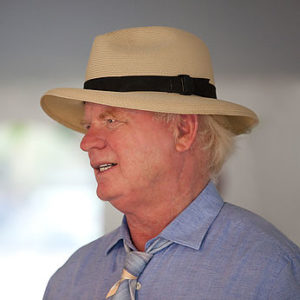Please join us for our Annual Meeting this coming August 9, 2023, 6:30 pm at WBNERR’s Visitor Center. Andrew Gottlieb, Executive Director of the Association to Preserve Cape Cod, will be our guest speaker talking about recent efforts across the Cape to address water quality in our bays and ponds along with some of the new funding sources available to help pay for it.
Tag: Annual Meeting

You are invited to attend our Annual Meeting to hear an important talk by Dr. John Todd, one of the co-founders of the New Alchemy Institute and the first winner of the Buckminster Fuller Challen
ge for, “the best idea to help humanity.” Dr. Todd will speak about his approach to restoring marine and fresh bodies of water stressed by nutrients. Considering the most recent report on Waquoit Bay and the time it will take for a plan to address waste water at its source, this is an option that should be considered.
In addition, James Rassman will tell us about the historical significance of Washburn Island as a training site for soldiers who participated in the D-day landings.
DATE: Wednesday, August 25th
TIME: 6:30 PM
PLACE: WBNERR boat house, 131 Waquoit Hwy., (Rte.28), East Falmouth, MA 02536
Desserts and coffee will be provided.
Dr. John Todd, Ph.D. is the President of Ocean Arks International and Professor Emeritus at the University of Vermont in the Rubinstein School of Environment and Natural Resources. He is a former assistant scientist at the Woods Hole Oceanographic Institute and the cofounder of the New Alchemy Institute on Cape Cod. He has pioneered ecological design and engineering and applied ecological concepts around the world to help solve major environmental issues. He is the inventor of eco-machines, technologies for wastewater treatment, environmental restoration and for the production of aquatic and terrestrial foods. In 2008 he became the first winner of the R. Buckminster Fuller Challenge for the “best ideal to help humanity.” His entry was entitled Design for a Carbon Neutral World? The Challenge of Appalachia.